 Japanese dance innovator DJ Honda has been crafting his funkadelic hip-hop slicing and dicing since his late teens, yearning to play up to American stylings of rock music. Such motivation led him to play guitar with the band Clique, but they didn't achieve the sort of stardom that DJ Honda was looking for. Instead, DJ Honda headed to the mixing booth, which lead him to make friends with Afrika Bambaata and Universal Zulu Nation and earn major airplay on Tokyo radio stations. In the mid-'90s, he released a slew of singles while making international headway in the club/dance circuit, and made his debut with Out for the Cash in 1995. Hll followed three years later, showcasing collaborations with De La Soul and KRS-1. That same year brought a split between he and Sony Music, leaving DJ Honda to create his own label DJ Honda Recordings.
Japanese dance innovator DJ Honda has been crafting his funkadelic hip-hop slicing and dicing since his late teens, yearning to play up to American stylings of rock music. Such motivation led him to play guitar with the band Clique, but they didn't achieve the sort of stardom that DJ Honda was looking for. Instead, DJ Honda headed to the mixing booth, which lead him to make friends with Afrika Bambaata and Universal Zulu Nation and earn major airplay on Tokyo radio stations. In the mid-'90s, he released a slew of singles while making international headway in the club/dance circuit, and made his debut with Out for the Cash in 1995. Hll followed three years later, showcasing collaborations with De La Soul and KRS-1. That same year brought a split between he and Sony Music, leaving DJ Honda to create his own label DJ Honda Recordings.
DJ Honda - DJ Honda (Jul 2, 1996: Relativity) DJ Honda's eponymous album is a mix CD featuring the DJ's seamless remixes of cuts by Tha Alkaholiks, Grand Puba and Sadat X, Al Tariq, Redman, and Biz Markie, among several others. It's an excellent album — not only are the beats and grooves continually danceable, it's possible to hear how inventive and talented DJ Honda is.
DJ Honda's eponymous album is a mix CD featuring the DJ's seamless remixes of cuts by Tha Alkaholiks, Grand Puba and Sadat X, Al Tariq, Redman, and Biz Markie, among several others. It's an excellent album — not only are the beats and grooves continually danceable, it's possible to hear how inventive and talented DJ Honda is.
DJ Honda - H2 (Mar 24, 1998: Relativity)
DJ Honda's second album HII is a quantum leap over his debut, largely because he's given himself freedom to cut-and-paste his own backgrounds and he's enlisted a number of collaborators (X-ecutioners, KRS-One, Mos Def) to spice up the mix. He's not a post-modernist like DJ Shadow — he's a modern hip-hop DJ, reviving the musical adventure of early hip-hop. Occasionally, the tracks collapse under their own ambitions, but much of HII simply tears along, pushing acid-jazz and street-level beats together. It's a fascinating, invigorating listen that more than makes the case that in the late '90s international hip-hop can be more exciting than the homegrown kind.
DJ Honda - H3 (Apr 3, 2001: Import)


 Kool G Rap & DJ Polo's Road to the Riches had been a long time coming when Cold Chillin' released it in 1989. It didn't disappoint. After some successful singles and G Rap's contributions to Marley Marl's Juice Crew, the duo arrived almost fully formed on its debut. Whether boasting (his greatest strength at this point) or spinning tales (which would become his greatest strength), G Rap's knife-edged rhymes — delivered with the hardest-sounding lisp in hip-hop — tear through Marley Marl's productions and DJ Polo's scratching with all the ferocity of a pit bull devouring a piece of meat. Though tracks like "Poison," "It's a Demo," and the title track won this record a lot of respect, there are several other moments that help make this a remarkable debut. On "Men at Work," lines like, "I drop rhymes on paper and then build a skyscraper/When I die scientists will preserve my brain/Donate it to science to answer the unexplained" whip by so fast that it's easy to overlook Marl and Polo's perfectly snarling, densely percussive backdrop. Marl's imaginative sampling gleans from all sorts of unexpected sources, like the harmonica from Area Code 615's "Stone Fox Chase," the odd phasings of Kraftwerk's "Trans-Europe Express" (no one used it like this), and the burbling synths from Gary Numan's "Cars" (remember, this was the late '80s). G Rap's occasional homophobic and woman-hating lyrics, along with some production nuances that haven't aged well, are the only hindrances. Aside from that, Road to the Riches showed promise while providing a jolt in its own right.
Kool G Rap & DJ Polo's Road to the Riches had been a long time coming when Cold Chillin' released it in 1989. It didn't disappoint. After some successful singles and G Rap's contributions to Marley Marl's Juice Crew, the duo arrived almost fully formed on its debut. Whether boasting (his greatest strength at this point) or spinning tales (which would become his greatest strength), G Rap's knife-edged rhymes — delivered with the hardest-sounding lisp in hip-hop — tear through Marley Marl's productions and DJ Polo's scratching with all the ferocity of a pit bull devouring a piece of meat. Though tracks like "Poison," "It's a Demo," and the title track won this record a lot of respect, there are several other moments that help make this a remarkable debut. On "Men at Work," lines like, "I drop rhymes on paper and then build a skyscraper/When I die scientists will preserve my brain/Donate it to science to answer the unexplained" whip by so fast that it's easy to overlook Marl and Polo's perfectly snarling, densely percussive backdrop. Marl's imaginative sampling gleans from all sorts of unexpected sources, like the harmonica from Area Code 615's "Stone Fox Chase," the odd phasings of Kraftwerk's "Trans-Europe Express" (no one used it like this), and the burbling synths from Gary Numan's "Cars" (remember, this was the late '80s). G Rap's occasional homophobic and woman-hating lyrics, along with some production nuances that haven't aged well, are the only hindrances. Aside from that, Road to the Riches showed promise while providing a jolt in its own right.






 Delayed for over a year while Rawkus sorted out its increasingly labyrinthine label affiliations (it was eventually licensed to a Koch subsidiary), The Giancana Story proves that time means nothing to one of the greatest rappers ever (though Rawkus took it too far when they declared "the game was named after him"). Don't call it a comeback because he never left — he recorded continually during the '90s — but Kool G's third solo record illustrates the rare case of the hip-hop world moving closer to a veteran than when he made his breakout. What sounded refreshing and genuinely unique in 1990 — check out before-their-time shots like "Road to the Riches" or "Streets of New York" — was becoming nearly ubiquitous by the end of the millennium, and besides slipping in a few more words per line than he used to, the first real hardcore rapper hasn't changed his style a whit (or needed to). The opener, "Thug for Life," is as clean a track as any classic golden-age production, but with the type of mid-tempo roll that gets it closer to later hardcore rap. The single "My Life," with Capone-N-Noreaga, is the best track here, the only one with any crossover appeal (via a remix complete with talk box and stuttered chorus). Everything else is pure hardcore rap, with all the dark intelligence and heavy venom hip-hop fans expect from a master.
Delayed for over a year while Rawkus sorted out its increasingly labyrinthine label affiliations (it was eventually licensed to a Koch subsidiary), The Giancana Story proves that time means nothing to one of the greatest rappers ever (though Rawkus took it too far when they declared "the game was named after him"). Don't call it a comeback because he never left — he recorded continually during the '90s — but Kool G's third solo record illustrates the rare case of the hip-hop world moving closer to a veteran than when he made his breakout. What sounded refreshing and genuinely unique in 1990 — check out before-their-time shots like "Road to the Riches" or "Streets of New York" — was becoming nearly ubiquitous by the end of the millennium, and besides slipping in a few more words per line than he used to, the first real hardcore rapper hasn't changed his style a whit (or needed to). The opener, "Thug for Life," is as clean a track as any classic golden-age production, but with the type of mid-tempo roll that gets it closer to later hardcore rap. The single "My Life," with Capone-N-Noreaga, is the best track here, the only one with any crossover appeal (via a remix complete with talk box and stuttered chorus). Everything else is pure hardcore rap, with all the dark intelligence and heavy venom hip-hop fans expect from a master.
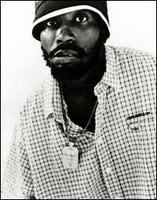
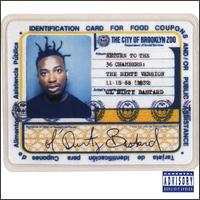
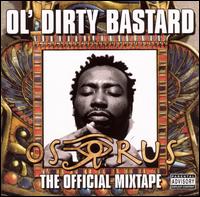



 As one of the original members of the seminal '90s rap crew The Wu-Tang Clan, Ghostface Killah (aka Tony Starks) made an impact before he released his debut album, Ironman, late in 1996. Like all members of The Wu-Tang Clan, the rapper used the group as a launching pad for a solo career, which was assisted greatly by other members of the Clan, particularly producer RZA. Ghostface Killah had rapped on Wu-Tang's 1993 debut, Enter The Wu-Tang, but he didn't distinguish himself until 1995, when he was showcased on fellow Wu member Raekwon's Only Built 4 Cuban Linx. Ghostface received good reviews for his appearance on the record, and his contribution to the soundtracks for Sunset Park and Don't Be a Menace to South Central While You're Drinking Your Juice in the Hood also were well-received. All of these guest appearances and soundtrack contributions set the stage for Ghostface Killah's solo debut, Ironman, in late 1996. Like all Wu-Tang projects, it was produced by RZA and was quite successful in the large hip-hop/rap underground, debuting at number two on the pop charts upon its release. Ironman was also the first album to be released on Razor Sharp Records, RZA's record label on Epic Records. Work with The Wu-Tang and their various members kept Ghostface Killah busy until solo singles started appearing at the end of 1999 followed by his sophomore full-length, Supreme Clientele, in early 2000. Supreme Clientele was a success, but it was followed a year later by Bulletproof Wallets, an album that didn't sell well and had fans declaring the Ironman had gone soft. Once again it was back to The Wu for a couple years before the rapper would be appearing solo again. Epic issued the compilation Shaolin's Finest in April of 2003, and by the end of the year two new Ghostface tracks had started to appear on mixtapes. The chaotic "Run" with Jadakiss and the more commercial "Tush" with Missy Elliot raised the anticipation for the rapper's first album for Def Jam and his first under the simpler moniker Ghostface. The Pretty Toney Album hit the streets in April of 2004. The Top Ten hit Fishscale followed in 2006, but not before 718, an album from his Theodore Unit.
As one of the original members of the seminal '90s rap crew The Wu-Tang Clan, Ghostface Killah (aka Tony Starks) made an impact before he released his debut album, Ironman, late in 1996. Like all members of The Wu-Tang Clan, the rapper used the group as a launching pad for a solo career, which was assisted greatly by other members of the Clan, particularly producer RZA. Ghostface Killah had rapped on Wu-Tang's 1993 debut, Enter The Wu-Tang, but he didn't distinguish himself until 1995, when he was showcased on fellow Wu member Raekwon's Only Built 4 Cuban Linx. Ghostface received good reviews for his appearance on the record, and his contribution to the soundtracks for Sunset Park and Don't Be a Menace to South Central While You're Drinking Your Juice in the Hood also were well-received. All of these guest appearances and soundtrack contributions set the stage for Ghostface Killah's solo debut, Ironman, in late 1996. Like all Wu-Tang projects, it was produced by RZA and was quite successful in the large hip-hop/rap underground, debuting at number two on the pop charts upon its release. Ironman was also the first album to be released on Razor Sharp Records, RZA's record label on Epic Records. Work with The Wu-Tang and their various members kept Ghostface Killah busy until solo singles started appearing at the end of 1999 followed by his sophomore full-length, Supreme Clientele, in early 2000. Supreme Clientele was a success, but it was followed a year later by Bulletproof Wallets, an album that didn't sell well and had fans declaring the Ironman had gone soft. Once again it was back to The Wu for a couple years before the rapper would be appearing solo again. Epic issued the compilation Shaolin's Finest in April of 2003, and by the end of the year two new Ghostface tracks had started to appear on mixtapes. The chaotic "Run" with Jadakiss and the more commercial "Tush" with Missy Elliot raised the anticipation for the rapper's first album for Def Jam and his first under the simpler moniker Ghostface. The Pretty Toney Album hit the streets in April of 2004. The Top Ten hit Fishscale followed in 2006, but not before 718, an album from his Theodore Unit.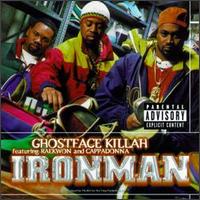
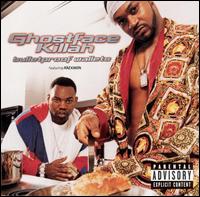
 Most of the members of rap's Roman Empire, the Wu-Tang Clan, experienced sophomore slumps with their second solo releases, whether artistically or commercially (usually both). The second offerings from Method Man, Ol' Dirty Bastard, GZA, and Raekwon featured some of the old Wu magic, but not enough to warrant a claim to their once total mastery of the rap game. Just as the Wu empire appeared to be crumbling, along came the second installment from the Clan's spitfire element, Ghostface Killah (aka Tony Starks, aka Ironman). Every bit as good as his first release, Supreme Clientele proves Ghost's worthiness of the Ironman moniker by deftly overcoming trendiness to produce an authentic sound in hip-hop's age of bland parity. Some of the Wu's slump could be contributed to Wu-Abbott's (aka RZA) relative sabbatical. This album has RZA's stamp all over it, but the guru himself only provides three tracks. On this effort, the Wu-Pupil producers at times seem to outdo their teacher. RZA's best composition is the piano-driven, double-entendre-laced childhood retrospective "Child's Play." But of the many standout cuts, it's the slew of disciple producers paying homage to the Wu legacy that truly makes this album fresh-sounding: "Apollo Kids" (Hassan), "Malcolm" (Choo the Specialist), "Saturday Nite" (Carlos "Six July" Broady), "One" (JuJu of the Beatnuts), "Cherchez la Ghost" (Carlos Bess), "Wu Banga 101" (Allah Mathematics). While the album is complete and characteristically Wu-sounding, each track is distinctive lyrically, thematically, and sonically. Ghostface's Supreme Clientele is a step toward the Wu-Tang Clan's ascent from the ashes of their fallen kingdom. The once slumbering Wu-Tang strikes again.
Most of the members of rap's Roman Empire, the Wu-Tang Clan, experienced sophomore slumps with their second solo releases, whether artistically or commercially (usually both). The second offerings from Method Man, Ol' Dirty Bastard, GZA, and Raekwon featured some of the old Wu magic, but not enough to warrant a claim to their once total mastery of the rap game. Just as the Wu empire appeared to be crumbling, along came the second installment from the Clan's spitfire element, Ghostface Killah (aka Tony Starks, aka Ironman). Every bit as good as his first release, Supreme Clientele proves Ghost's worthiness of the Ironman moniker by deftly overcoming trendiness to produce an authentic sound in hip-hop's age of bland parity. Some of the Wu's slump could be contributed to Wu-Abbott's (aka RZA) relative sabbatical. This album has RZA's stamp all over it, but the guru himself only provides three tracks. On this effort, the Wu-Pupil producers at times seem to outdo their teacher. RZA's best composition is the piano-driven, double-entendre-laced childhood retrospective "Child's Play." But of the many standout cuts, it's the slew of disciple producers paying homage to the Wu legacy that truly makes this album fresh-sounding: "Apollo Kids" (Hassan), "Malcolm" (Choo the Specialist), "Saturday Nite" (Carlos "Six July" Broady), "One" (JuJu of the Beatnuts), "Cherchez la Ghost" (Carlos Bess), "Wu Banga 101" (Allah Mathematics). While the album is complete and characteristically Wu-sounding, each track is distinctive lyrically, thematically, and sonically. Ghostface's Supreme Clientele is a step toward the Wu-Tang Clan's ascent from the ashes of their fallen kingdom. The once slumbering Wu-Tang strikes again.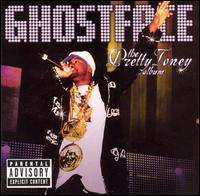
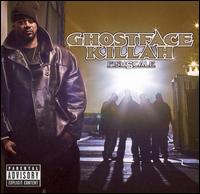
 Loosely speaking, More Fish is to Fishscale what Theodore Unit's 718 was to The Pretty Toney Album, albeit with more focus on Ghostface. While the title of this disc seems synonymous with Have Some Leftovers, it's not at all stale, if not nearly as spectacular as its precursor. Again, Ghostface showcases Trife da God, Cappadonna, Shawn Wigs, and Solomon Childs, while Sun God (Ghostface's son), Killa Sin, Sheek Louch, Redman, and a few others also assist. Ghost goes it alone on four tracks, and three others are left strictly in the hands of his protégés. With the exception of weak link Wigs, each one of them continues to improve. Unsurprisingly, Ghostface's performances are never outstripped by those of the other MCs, and no track — with the exception of the tacked-on "Back Like That" remix — makes any kind of commercial concession. Since Fishscale wasn't even close to going gold at the time of the disc's release, it's obvious that More Fish was issued to get the instant sales of Ghost's devout fanbase. "Guns 'n' Razors," "Outta Town Sh*t," and "Block Rock" generate the trademark breakneck high adventure, with Ghost on full, furious blast. Apropos of nothing, one of "Block Rock"'s tangents is an amped-up dismissal of Lil Jon: "If Little Jon could ice his cup, I'd chop that sh*t, it'd ice my nuts." After that, the intensity drops for several tracks, regained temporarily by "Alex (Stolen Script)," where Ghost makes the life of a fledgling movie mogul sound as dramatic and nearly as twisted as the crack trade. In the "too much information" department: when, in "Street Opera," Ghost recalls exploits shared with his son, "We ran trains for hours up in the Days Inn" probably has nothing to do with a dictionary's definition of "train" (unless, of course, your source is
Loosely speaking, More Fish is to Fishscale what Theodore Unit's 718 was to The Pretty Toney Album, albeit with more focus on Ghostface. While the title of this disc seems synonymous with Have Some Leftovers, it's not at all stale, if not nearly as spectacular as its precursor. Again, Ghostface showcases Trife da God, Cappadonna, Shawn Wigs, and Solomon Childs, while Sun God (Ghostface's son), Killa Sin, Sheek Louch, Redman, and a few others also assist. Ghost goes it alone on four tracks, and three others are left strictly in the hands of his protégés. With the exception of weak link Wigs, each one of them continues to improve. Unsurprisingly, Ghostface's performances are never outstripped by those of the other MCs, and no track — with the exception of the tacked-on "Back Like That" remix — makes any kind of commercial concession. Since Fishscale wasn't even close to going gold at the time of the disc's release, it's obvious that More Fish was issued to get the instant sales of Ghost's devout fanbase. "Guns 'n' Razors," "Outta Town Sh*t," and "Block Rock" generate the trademark breakneck high adventure, with Ghost on full, furious blast. Apropos of nothing, one of "Block Rock"'s tangents is an amped-up dismissal of Lil Jon: "If Little Jon could ice his cup, I'd chop that sh*t, it'd ice my nuts." After that, the intensity drops for several tracks, regained temporarily by "Alex (Stolen Script)," where Ghost makes the life of a fledgling movie mogul sound as dramatic and nearly as twisted as the crack trade. In the "too much information" department: when, in "Street Opera," Ghost recalls exploits shared with his son, "We ran trains for hours up in the Days Inn" probably has nothing to do with a dictionary's definition of "train" (unless, of course, your source is 
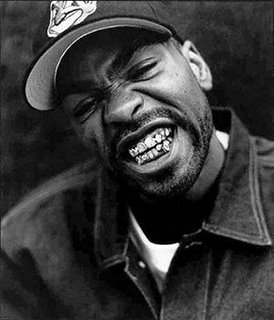
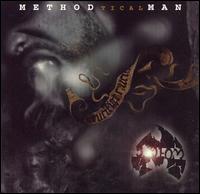
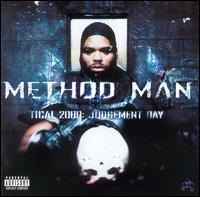
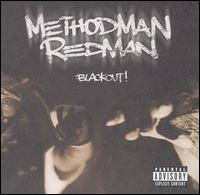


.jpg)
.jpg)
.jpg)



